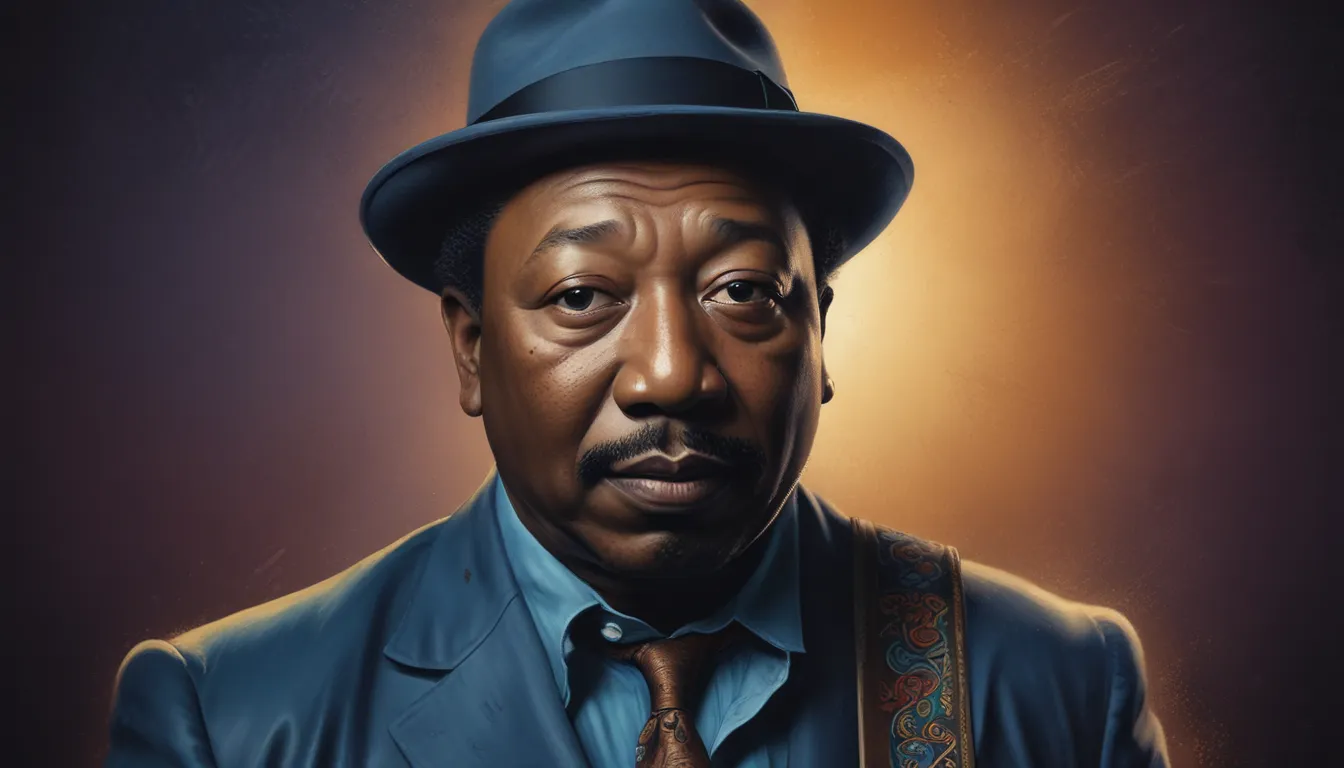The images in our articles may not match the content exactly. They are used to grab your attention, not to show the exact details in the text. The images complement the text but do not replace it.
Muddy Waters, born McKinley Morganfield, was a legendary blues musician whose powerful voice, electrifying guitar skills, and soulful songwriting left an indelible mark on the music industry. From his humble beginnings in Mississippi to his rise to stardom in Chicago, Muddy Waters revolutionized the blues genre, paving the way for future generations of musicians to come.
Uncovering the Roots of Muddy Waters’ Music
Muddy Waters was born on April 4, 1913, in Rolling Fork, Mississippi. His birth name, McKinley Morganfield, gave way to the iconic stage name he would later adopt – Muddy Waters. Inspired by the deep, muddy waters of the Mississippi River that flowed near his childhood home, Waters’ connection to his roots in the Delta blues style of music was profound.
Drawing inspiration from legendary bluesmen like Son House and Robert Johnson, Muddy Waters seamlessly integrated their powerful vocals and slide guitar techniques into his own unique sound. His migration to Chicago in 1943 marked a pivotal moment in his career, as he quickly became the face of the Chicago blues movement, solidifying his status as a blues icon.
The Musical Influence of Muddy Waters
Muddy Waters’ impact on the music industry extended far beyond the blues genre. His electrifying performances, commanding stage presence, and dynamic guitar playing captivated audiences worldwide, transforming blues into rock and roll. Hits like “Hoochie Coochie Man,” “Mannish Boy,” and “Rollin’ Stone” showcased Waters’ innovative sound and powerful storytelling abilities.
Known for popularizing the slide guitar technique in the blues genre, Muddy Waters’ distinctive style of playing using a bottleneck or metal tube became a trademark of his music. His collaborations with legendary musicians such as Willie Dixon, Little Walter, and Otis Spann resulted in some of the most iconic blues recordings of all time, solidifying his influence on future generations of musicians.
The Enduring Legacy of Muddy Waters
Muddy Waters’ impact on the music industry is undeniable. His deep, soulful voice and groundbreaking contributions to blues and rock continue to inspire musicians to this day. Artists like Jimi Hendrix, Eric Clapton, and The Rolling Stones have cited Waters as a major influence, highlighting his lasting legacy in the world of music.
Throughout his career, Muddy Waters received numerous awards and accolades, including induction into the Rock and Roll Hall of Fame, a Grammy Lifetime Achievement Award, and even a postage stamp in his likeness. Despite facing racial discrimination as a Black musician, particularly in the segregated South, Waters’ determination and talent allowed him to overcome these challenges, leaving behind a legacy that transcends generations.
Muddy Waters’ Continued Influence
Even decades after his passing, Muddy Waters’ influence can still be felt in contemporary music. His soul-stirring vocals, electrifying guitar playing, and authentic blues sound resonate with audiences worldwide, ensuring that his legacy will be cherished for generations to come. In 2007, Waters was posthumously awarded the Presidential Medal of Freedom, further solidifying his place in history as a true musical pioneer.
In conclusion, Muddy Waters’ remarkable talent, groundbreaking music, and enduring legacy make him an icon in the world of blues and beyond. His contributions to music, both as a performer and a songwriter, continue to inspire and shape the blues genre to this day. Explore the discography of Muddy Waters and immerse yourself in the soulful sound that defined a generation – you won’t be disappointed.
FAQs about Muddy Waters
- Who is Muddy Waters?
-
Muddy Waters, born McKinley Morganfield, was an American blues musician widely regarded as one of the greatest blues artists of all time. Known for his powerful voice, electrifying guitar playing, and influential songwriting, Waters revolutionized the blues genre.
-
What are some of Muddy Waters’ famous songs?
-
Muddy Waters had many famous songs, including “Hoochie Coochie Man,” “Mannish Boy,” “Rollin’ Stone,” and “Got My Mojo Working.” These songs have become timeless classics within the blues genre.
-
How did Muddy Waters influence other musicians?
-
Muddy Waters had a profound influence on many musicians across various genres. His innovative use of the electric guitar and unique vocal style inspired artists like The Rolling Stones, Eric Clapton, and Jimi Hendrix, among others.
-
Where did Muddy Waters get his inspiration from?
-
Muddy Waters drew inspiration from the rural Mississippi Delta, where he grew up. Deeply influenced by the traditional blues sounds of the region, he incorporated these elements into his music, giving it its distinctiveness.
-
What is Muddy Waters’ legacy?
- Muddy Waters’ legacy is that of a true blues pioneer who helped popularize the genre and bring it to a wider audience. His contributions to music, both as a performer and a songwriter, continue to inspire and shape the blues genre to this day.
Muddy Waters’ groundbreaking contributions to blues music continue inspiring generations of musicians. His electrifying performances, soulful voice, influential songs, and enduring legacy solidify his place in history as one of the greatest blues artists of all time. Explore the rich tapestry of Muddy Waters’ music and experience the soul-stirring sound that defined an era.






